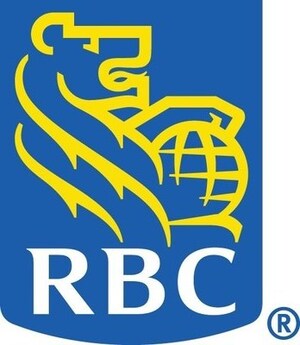Majority of newcomers to Canada not confident in their financial knowledge: RBC poll
Misconceptions about credit persist among new immigrants
TORONTO, July 3, 2013 /CNW/ - Six-in-10 newcomers (60 per cent) who arrived in Canada in the past year say that they lack financial knowledge, including how to establish and build credit during their first year living in Canada, according to the RBC Newcomer Financial Attitudes Poll. Among those who have lived in Canada between two and five years, 92 percent of newer Canadians found their financial literacy about borrowing options improved.
"We have an opportunity to improve financial understanding for newcomers to Canada when they first arrive and we have a role to play in making sure that they are getting the right advice from day one," said Paul Sy, director, Multicultural Markets, RBC. "Building a strong credit score is important to helping you get established in Canada, particularly when the time comes to buy a car or a family home."
During the first year in their new home country, few newcomers believed that using a credit card would help them establish a credit rating (nine per cent) or make life more convenient (12 per cent). But over time, these newcomers pick up financial knowledge quickly, as they integrate into their communities and learn to use credit responsibly. For immigrants who have lived in Canada for two to five years, they were now more likely to agree that credit cards make life more convenient (59 per cent) and that it's easy to use a credit card to help establish a Canadian credit rating (54 per cent).
"Economically and socially, it is in Canada's best interest for its consumers to be financially literate and practice good financial habits," said Sy.
Demystifying credit for newcomers
There are still a lot of misconceptions when it comes to credit use for newcomers to Canada and Sy clarifies the following:
- Myth: In Canada, your credit rating is affected by your age, income and gender. The higher a person's income, the better that person's credit rating will be. Reality: Your credit rating is based on your record of managing your finances responsibly. Lenders look at how you handle your financial obligations, such as whether you pay your monthly bills on time, carry a balance, or regularly miss payments.
- Myth: Someone who has a lot of assets in their home country will have a better credit rating. Reality: Although assets are part of the equation, lenders in Canada will also focus on your Canadian borrowing history to assess your creditworthiness. That's why it is important to build your Canadian credit profile early on, especially if you have plans for big purchases, such as a house or car, which typically require a loan. Even smaller transactions, such as renting living accommodations or getting a cell phone, often require a credit check.
- Myth: When you get married your credit scores are merged. Reality: Credit scores are based on individuals. Any joint application for a loan will be assessed on both partner's credit profiles. As well, any negative or positive reporting will be reflected on each score and could affect your approval or the terms of your loan.
To learn more about how RBC helps newcomers get financially prepared for life in Canada, please visit: www.rbc.com/canada/index.html.
About the RBC Newcomer Financial Attitudes Poll
The findings were conducted by Environics Research Group on behalf of RBC in May 2013. Environics conducted a total of 560 interviews among Chinese, South Asian and other immigrant residents in British Columbia and Ontario who are first generation and have lived in Canada for up to five years. Interviews were conducted online and respondents were recruited from an online consumer research panel. Quotas were applied to represent the different regions and tenure in Canada to represent the population as closely as possible. A survey with an unweighted probability sample of this size and a 100 per cent response rate would have an estimated margin of error of ±five percentage points 19 times out of 20 of what the results would have been had the entire population of immigrants in Canada been polled. All sample surveys and polls may be subject to other sources of error, including, but not limited to, coverage error and measurement error.
About RBC's Welcome to Canada Package
For more than seven generations, RBC has been supporting newcomers by providing them with resources and tools that make the transition to a new country seamless. The RBC Welcome to Canada package helps newcomers who have been in Canada for less than three years with key financial decisions and includes advice and discounts on products and services, such as a no-annual fee RBC Cash Back MasterCard to help them start building credit. Consumers around the world can access information on moving to Canada, including financial advice checklists and more, at www.rbc.com/canada.
SOURCE: RBC

WANT YOUR COMPANY'S NEWS FEATURED ON PRNEWSWIRE.COM?
Newsrooms &
Influencers
Digital Media
Outlets
Journalists
Opted In




Share this article